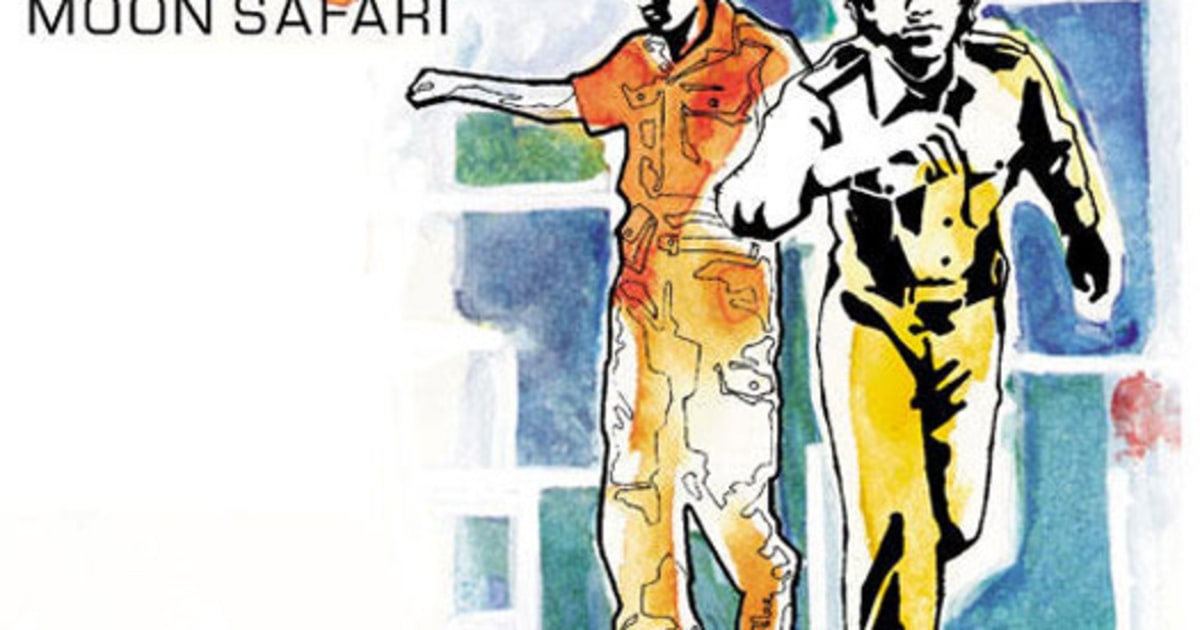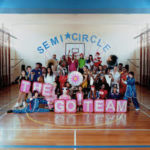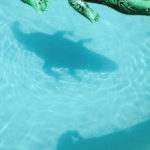As it turns 20 years old this week, it’s difficult to contextualise a crossover hit as big and as strange as Air’s Moon Safari in 2018. To cast our minds back to a pre-Internet age when we didn’t have access to the world’s back catalogues at our fingertips. However, back in the post-Britpop malaise of 1998; Air’s Moon Safari took a sprawling and diverse range of influences to re-imagine chillout electronica, internationally transform perspectives on French music, and have a bonafide crossover hit.
Talking to the Guardian in 2016, Jean-Benoit Dunckel said; “It was the tail end of Britpop, and people were wanting something else. We came along with this psychedelic, loungecore music you’d listen to on a Sunday morning after you’d been out clubbing the night before. And one month after Moon Safari came out, we were huge.”
It was an album that turned indie-kids on to jazz and gave clubbers something genuinely innovative to soothe their heads with the morning after. Ostensibly it is built on 1960s French easy-listening fare, has bass playing indebted to Gainsbourg records, bongos and electric pianos lifted from film soundtracks. However, Nicolas Godin and Jean-Benoit Dunckel pushed this musical vocabulary into an unchartered and alien territory. ‘Sexy Boy’s strident synths and production still sound futuristic 20 years on, Beach Boys pastiche falls seamlessly into their organic, textured universe. The lilting horn hook on ‘Ce matin-la’ takes very nostalgic sounds into unexplored territory. I’m sure Damon Albarn has closely studied ‘New Star In The Star’ – its application of blue-eyed soul and Bowie to downbeat electronica has formed a fair amount of his bread and butter for the best part of a decade.
Crucially, Moon Safari is a very emotional electronic record and one that perhaps demonstrated to a wider audience the emotionality that the genre is capable of embodying. Beth Hirsch’s heartbroken turns on ‘You Make It Easy’ and ‘All I Need’ are incredibly powerful in the context of the record – giving it a beating heart. That isn’t to say that the rest of the record is austere – everything on Moon Safari, from gently plucked acoustic guitars to swirling electronic textures sounds deeply human. This is perhaps the record’s biggest strength. It’s a carnal album, pulsating with desire and tenderness.
In the same Guardian article, Dunckel observes ‘Before we came along, French pop was synonymous with Sacha Distel. I hated it. But electronic music But electronic music meant you could make cool music without being a rocker. In France, we’re not considered a great band. The French still have very bad taste in music.’ It does raise the question that, without the unexpected, trailblazing success of Moon Safari would electronic music synonymous with France in the late ’90s and early 2000s- Daft Punk, Sebastian Tellier et al – have had as much crossover success? Irrespective, Moon Safari still stands up on its own as a uniquely realised vision; futuristic and familiar, emotional and alien- and it’s these remarkable qualities that make it so enduring on many, many repeated listens.




